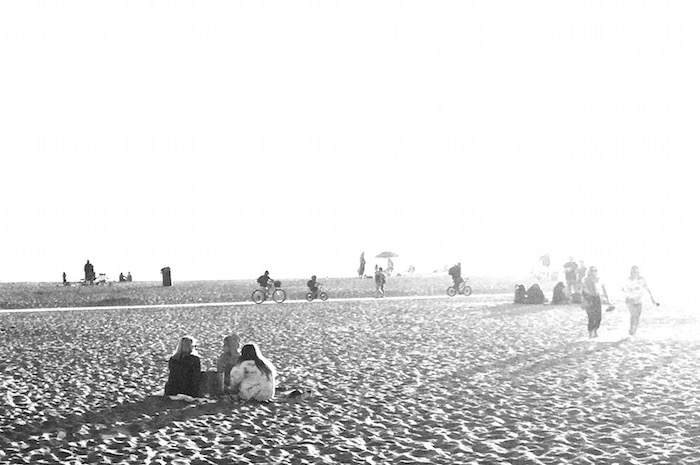My Privilege to Breathe, Los Angeles - Minneapolis

May 25, 2020. Memorial Day. 6 PM in Los Angeles. We decide to prepare the tenderloin, sweet potatoes and brussels sprouts first, go to the beach for sunset, have a dinner and movie night at home. I start peeling potatoes while my husband marinates meat for the grill.
2000 miles northeast it's 8 PM. The sun has set. There is still a glow of light. The air is warm. An employee of the Cup Foods store, corner of 38th street and Chicago Avenue in Minneapolis, Missouri calls the police. A man, he says, used a fake 20 dollar note to buy a pack of cigarettes. Eight minutes later a squad car arrives.
6:20 PM Los Angeles. While I pour olive oil over the veggies, add fresh rosemary and lemon juice, 17 year old Darnella Frazier pushes the video button on her smartphone.
The scene in front of her: an unarmed handcuffed black man in an undershirt lies on his stomach, pressed to the ground behind a police car, his left cheek smashed into the rough hot pavement by the knee of a white man in uniform who has one hand in his pants pocked, sun glasses pushed to the top of his head and a smirk on his face. Two officers help him pin the black man down. Another officer watches.
The man on the ground is George Floyd, 46 years old, the first of his siblings to go to college, father of a six year old girl. Friends call him "Perry" and "Big Floyd". His mother died two years ago.
6:22 PM Los Angeles. I put the pan in the oven. The scent of rosemary fills our kitchen.
Please!
Please!
Please!
I can't breathe.
I watch neighbors walk two fluffy dogs past our house.
I can't breathe.
About to die.
Get off my face.
Soft evening light falls on the yellow tiles.
I can't breathe.
Shit.
I can't move.
I throw the veggie peals and rosemary twigs in the compost bin.
Mamma.
Mamma.
I can't.
I'm through.
I can't.
I'm dying.
A breeze touches my cheek.
My knee.
My neck.
My stomach hurts.
My neck hurts.
Everything hurts.
I wipe oil and lemon spills from the kitchen counter.
Water.
Something.
Please.
My husband brings the meat inside. It's juicy, sizzles and smells peppery.
I can't breathe, officer.
They will kill me.
They are going to kill me.
They are going to kill me, man.
I'm in the bathroom, put sunscreen on my face, look for my sandals.
I cannot breathe.
I cannot breathe.
I can't breathe.
Please.
I can't breathe.
8:25 PM Minneapolis. The people who watched George Floyd plead with the officer to lift his knee, realize that the man on the pavement has stopped moving. They implore the officers to let him breathe, to take his pulse, to put him in the car. In vain. The knee stays on George Floyd's neck for eight minutes and 46 seconds.
8:27 PM Minneapolis. An ambulance arrives. The driver calls into the hospital's ER that medics are working on an unresponsive, pulseless man. One hour later George Floyd is pronounced dead.
I stand at the ocean, feet in the waves, watch the sun set, pull the bandana off my face and take a few deep breaths. The beach is packed. Signs warn that we are not allowed to picknick, play volleyball or ride a bike. All of which is happening around me with officers looking on from their squad cars.
Before I put the bandana back on, I take another deep breath of fresh and salty air, keep it in my lungs for a bit before I let it go. Then I take another breath. Just like that.
please send your comments to This email address is being protected from spambots. You need JavaScript enabled to view it.
